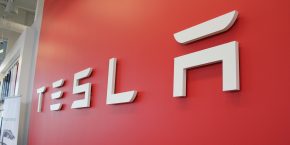
After some recent bad experiences with Tesla’s third-party approved body shop program came to light, the company vowed to update it in order to avoid those situations and long wait times in the future – especially with the upcoming launch of the Model 3.
Today, we learn that Tesla is simplifying the training and reducing the cost to become certified to repair its vehicles, which should result in overall lower cost and better access to repair.
Several markets have only one or a few Tesla approved body shops, which can result in important backlogs for repairs – on top of Tesla’s lead time on parts.
It can be difficult and costly for a body shop to become approved by Tesla since it requires on-site training, sending technicians to California, and acquiring expensive equipment. All in, it can cost in the hundreds of thousands of dollars depending on the shop and its current machines.
It’s why we were surprised when Tesla President Jon McNeill announced last month that Tesla will ‘add 300 body shops to its network in the next few weeks’. It seemed impossible.
But it’s more believable now that we learn Tesla is partnering with I-CAR to update and expand its program. The company made the announcement to its body shop last week in an email leaked by Repairer Driven News and embedded below.
I-CAR describes itself on its website:
I-CAR, the Inter-Industry Conference on Auto Collision Repair, is an international not-for-profit organization dedicated to providing the information, knowledge and skills required to perform complete, safe and quality repairs.
With the partnership, Tesla will be moving its program online instead of having in-person training for structural technicians and it is also changing its equipment requirements. They wrote in the email:
“Model 3 is just around the corner and we have been making a number of significant improvements to the Body Repair Program in preparation for the increased volumes Model 3 will bring. In order to scale, we recognize the need to simplify the process of training, and reduce the complexity and cost of tooling required to repair our cars. Our tooling objective is to minimize the additional cost, beyond what our shops, already properly equipped for mainstream vehicle repair (aluminum or steel), have invested. We are designing repair procedures and requirements with these factors in mind.”
They have now approved “8 of the most popular aluminum welders prevalent within the collision repair industry” and they are still “exploring promising alternatives to other equipment for which they previously offered limited options.”
Tesla is already canceling scheduled training sessions and replacing them with the courses available online.
They concluded the email by teasing news of the Model 3 for the program:
“We will Share more exciting information in the coming weeks regarding Model 3, as well as details of other program improvements that are long overdue. “
Considering the Model 3 is scheduled to enter production in July, it would be presumed that the body shops would need the repair literature ahead of time.
Here’s the email in full:
[scribd id=346176899 key=key-FjiwRy7QnT4gkO48mF89 mode=scroll]
FTC: We use income earning auto affiliate links. More.




Comments